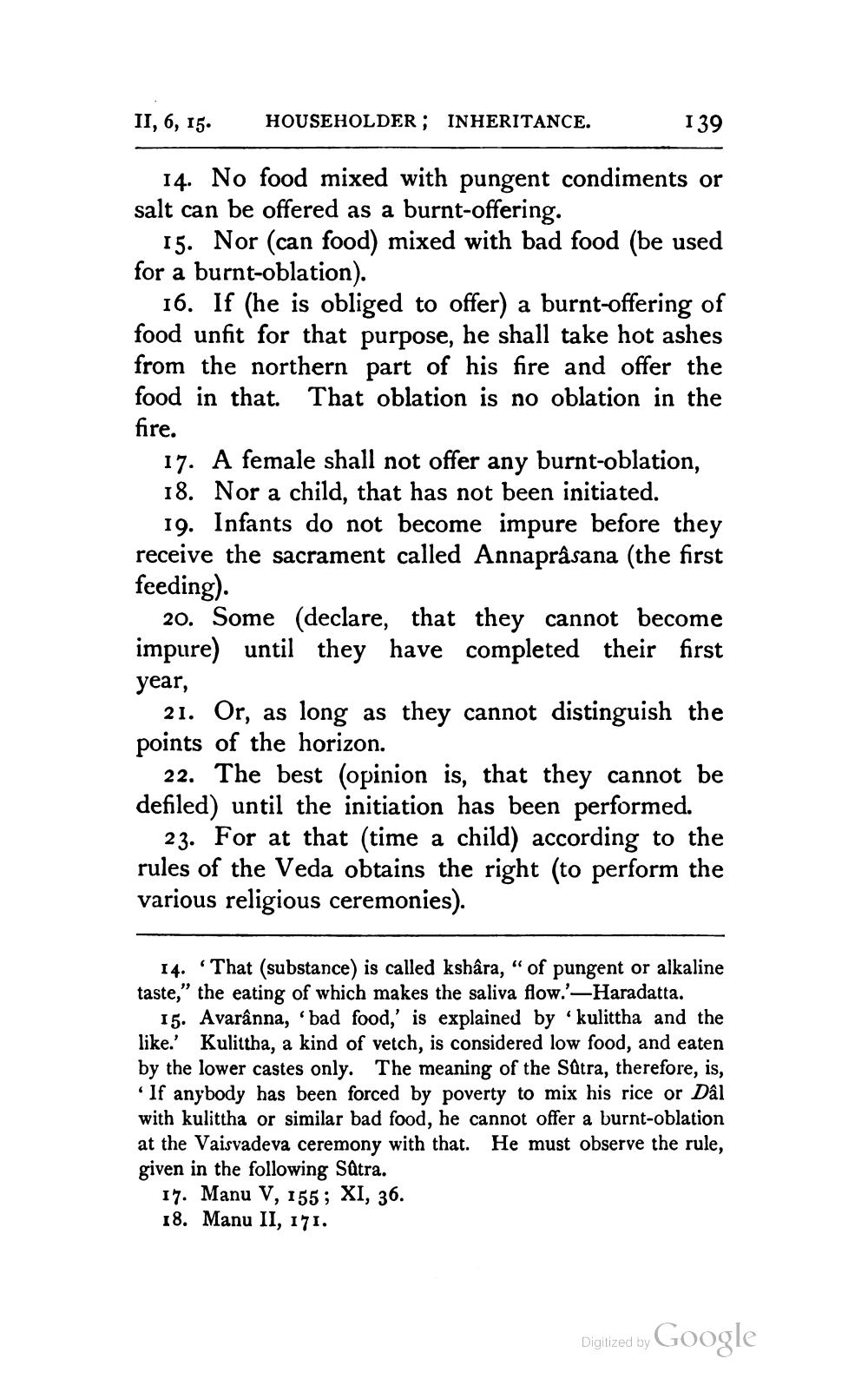________________
II, 6, 15.
HOUSEHOLDER; INHERITANCE.
139
14. No food mixed with pungent condiments or salt can be offered as a burnt-offering.
15. Nor (can food) mixed with bad food (be used for a burnt-oblation).
16. If (he is obliged to offer) a burnt-offering of food unfit for that purpose, he shall take hot ashes from the northern part of his fire and offer the food in that. That oblation is no oblation in the fire.
17. A female shall not offer any burnt-oblation, 18. Nor a child, that has not been initiated.
19. Infants do not become impure before they receive the sacrament called Annaprâsana (the first feeding).
20. Some (declare, that they cannot become impure) until they have completed their first year,
21. Or, as long as they cannot distinguish the points of the horizon.
22. The best (opinion is, that they cannot be defiled) until the initiation has been performed.
23. For at that (time a child) according to the rules of the Veda obtains the right (to perform the various religious ceremonies).
14. "That (substance) is called kshâra, "of pungent or alkaline taste," the eating of which makes the saliva flow.'-Haradatta.
15. Avarânna, bad food,' is explained by kulittha and the like.' Kulittha, a kind of vetch, is considered low food, and eaten by the lower castes only. The meaning of the Sätra, therefore, is,
If anybody has been forced by poverty to mix his rice or Dal with kulittha or similar bad food, he cannot offer a burnt-oblation at the Vaisvadeva ceremony with that. He must observe the rule, given in the following Sūtra.
17. Manu V, 155; XI, 36. 18. Manu II, 171.
Digitized by Google




